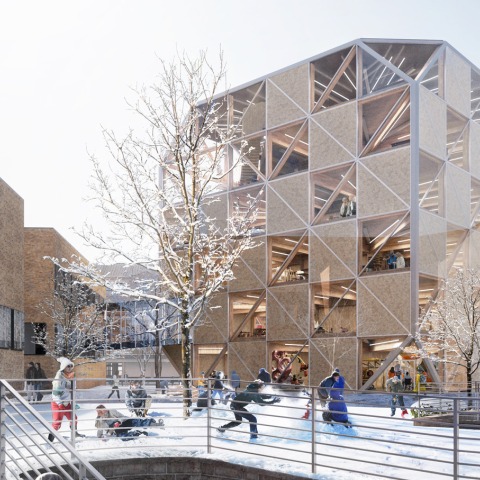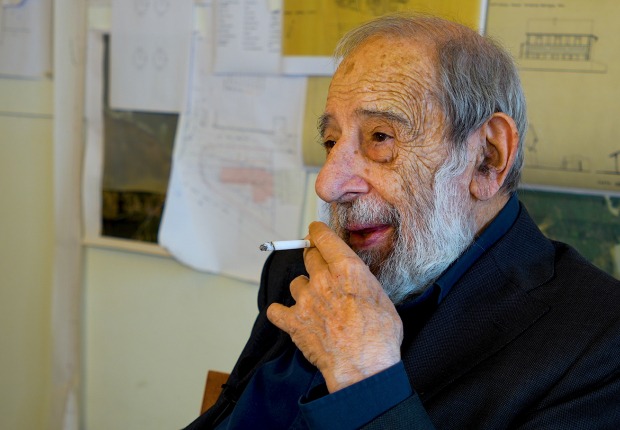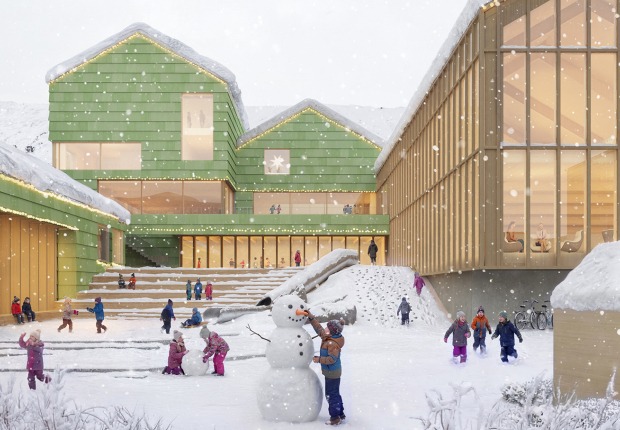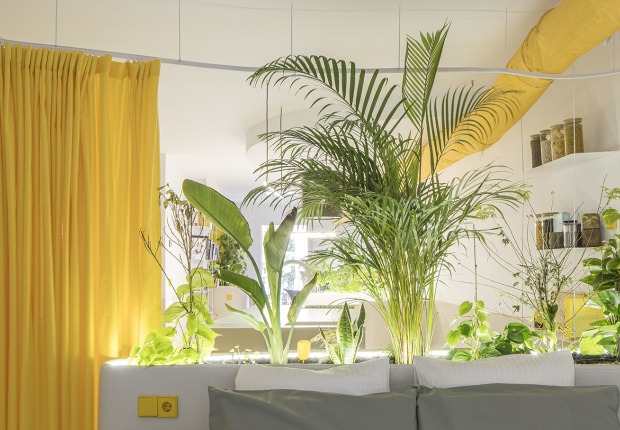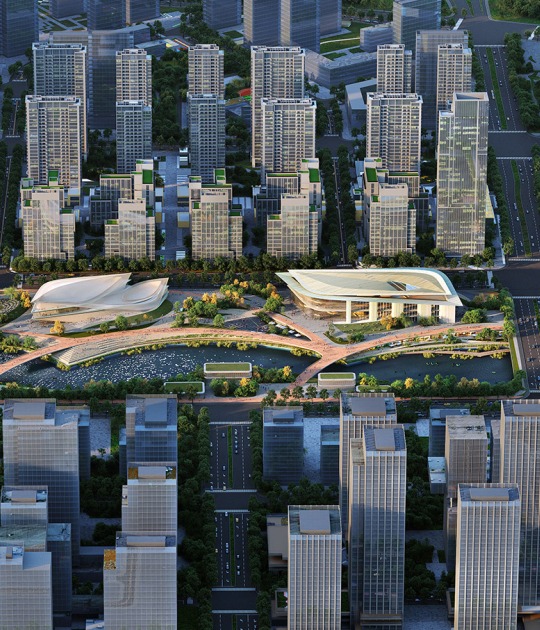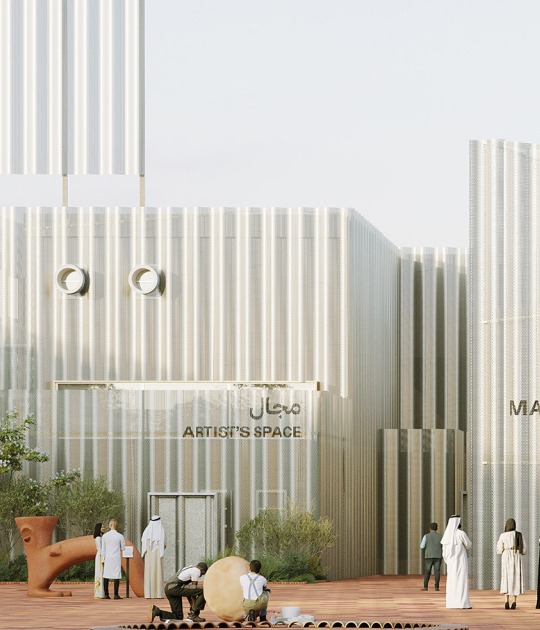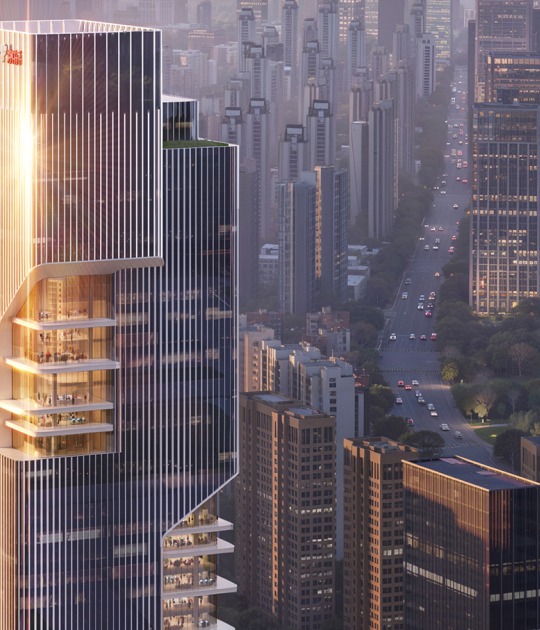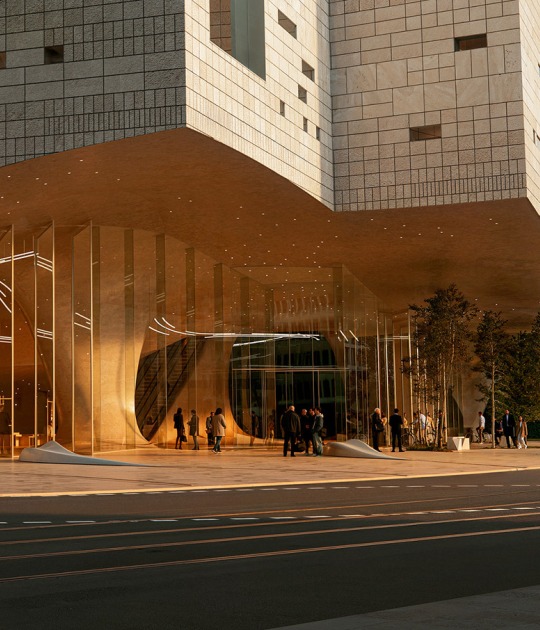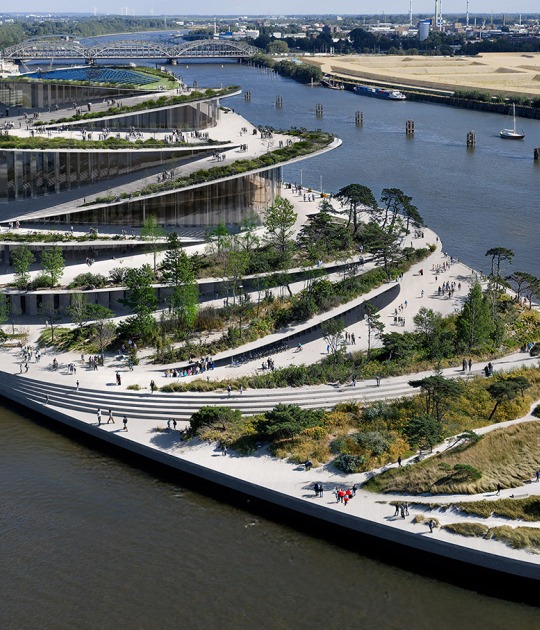The adjacent Marvin Hall’s stone façade and beloved spaces will be historically preserved while Chalmers Hall will be renovated to bring in more daylight. The campus seeks to embody four primary principles: to become an emblem of creativity; to create a connected campus hub; to be innovative and future-proof; and to showcase environmental stewardship.
The Makers’ KUbe is a 50,000-square-foot mass timber cube structure. The KUbe’s distinct timber diagrid frame - engineered by structural engineer StructureCraft - is optimized to reduce material and curtail carbon-intensive concrete. Inspired by traditional Japanese joinery techniques, the building’s structure uses tight-fit dowels and notched glulam – or glue-laminated timber – to create an all-wood structure with columns and beams that run diagonally, without steel plates or fasteners.

Makers' KUbe by BIG. Rendering by Kilograph.
The stripped façade - a timber structure enclosed in glass - foregoes cladding and finishing, exposing the KUbe’s MEP systems and further proving the building’s ability to remain minimal and efficient, only using what is necessary. The mix of transparent and opaque insulated glass on the exterior showcases the school’s creativity to the entire University of Kansas campus while creating moments of privacy and reducing glare. The building’s enclosure includes natural fibre thermal insulation in the form of biodegradable hemp wool, which is exposed within the facade’s shadow boxes for improved thermal performance.
The KUbe’s massing is rotated to align with Wescoe Drive and the surrounding buildings to allow for more light and air to be brought into the existing buildings. Winter garden bridges located on the KUbe’s second floor connect it to Marvin Hall and Chalmers Hall, providing easy circulation between buildings in the colder months and enhancing interactions among students and faculty. The KUbe’s ground-level corners are angled inward, creating inviting canopied entrances that connect the building to the surrounding open spaces, while the upper-level corners are set back to allow for accessible terraces open to the sky, providing generous views of the campus and the city.

The building serves as a living curriculum, revealing all function, technology and structure as tangible elements for the students to appreciate and critique - learning solidified into built form.”

Details of joints and unions. Makers' KUbe by BIG.

Details by StructureCraft. Photograph by Graham Handford.
The Makers’ KUbe is a hub for innovation and a resource for students. The building’s light-filled, six-story open plan creates a layered and flexible studio, fostering collaboration between students. The KUbe contains open studio space, 3D-printing and robotic labs, as well as a cafe on the ground level, all organized around a central core. The floorplates are cut to allow for a continuous sequence of single and double-height spaces and can be partitioned to create a more typical classroom experience. A fire-resistant egress feature staircase spirals up the building, encouraging spontaneous moments of creative interaction and maximizing available floor space. All interior materials are recyclable.
Embodying the university’s values, the proposed campus for the school preserves and adapts existing spaces while utilizing timber to minimize its carbon footprint. The Makers’ KUbe and Chalmers Hall feature rooftops with photovoltaic panels to harvest energy for the buildings. Any rainwater accumulated on the KUbe’s roof is stored and used for irrigating the site’s landscaping, which features native species that further reduce water needs.
BIG has completed higher education projects including UMass Amherst’s Isenberg Innovation Hub, with Johns Hopkins University’s mass timber Student Center currently under construction and Claremont McKenna College’s Robert Day Sciences Center opening in 2025.
